| Listing 1 - 10 of 11 | << page >> |
Sort by
|
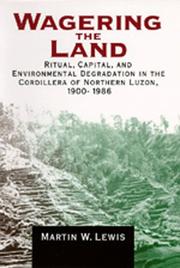
ISBN: 0585070431 0520072723 Year: 1992 Publisher: Berkeley : University of California Press,
Abstract | Keywords | Export | Availability | Bookmark
 Loading...
Loading...Choose an application
- Reference Manager
- EndNote
- RefWorks (Direct export to RefWorks)
Agricultural ecology --- Tropical vegetable industry --- Agriculture --- Nature --- Rites and ceremonies --- Environmental degradation --- Economic aspects --- Social aspects --- Effect of human beings on --- Buguias (Philippines) --- Politics and government. --- Religious life and customs.
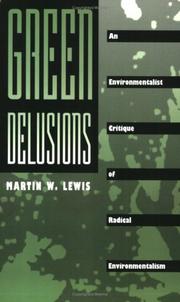
ISBN: 0822314746 Year: 1994 Publisher: Durham Duke university press
Abstract | Keywords | Export | Availability | Bookmark
 Loading...
Loading...Choose an application
- Reference Manager
- EndNote
- RefWorks (Direct export to RefWorks)
Multi
ISBN: 9781107054530 1107054532 9781107294332 9781107665385 1316315908 1316322602 1316309223 1316329283 1316332624 1107665388 1316325946 1316319245 1107294339 1316288498 Year: 2015 Publisher: Cambridge Cambridge university press
Abstract | Keywords | Export | Availability | Bookmark
 Loading...
Loading...Choose an application
- Reference Manager
- EndNote
- RefWorks (Direct export to RefWorks)
Over the past decade, a group of prolific and innovative evolutionary biologists has sought to reinvent historical linguistics through the use of phylogenetic and phylogeographical analysis, treating cognates like genes and conceptualizing the spread of languages in terms of the diffusion of viruses. Using these techniques, researchers claim to have located the origin of the Indo-European language family in Neolithic Anatolia, challenging the near-consensus view that it emerged in the grasslands north of the Black Sea thousands of years later. But despite its widespread celebration in the global media, this new approach fails to withstand scrutiny. As languages do not evolve like biological species and do not spread like viruses, the model produces incoherent results, contradicted by the empirical record at every turn. This book asserts that the origin and spread of languages must be examined primarily through the time-tested techniques of linguistic analysis, rather than those of evolutionary biology.
Indo-European languages --- Evolution. Phylogeny --- Historical linguistics --- Indoeuropeiska språk --- Språkhistoria --- Indo-Europeans --- Historical linguistics. --- Linguistic analysis (Linguistics) --- Evolution (Biology) --- Phylogeny. --- Phylogeography. --- Bayesian statistical decision theory. --- forskning --- Study and teaching. --- Research. --- Migrations. --- Origin. --- Språkhistoria. --- Linguistic analysis (Linguistics). --- Evolution (Biology). --- forskning. --- Forskning. --- Phylogeny --- Phylogeography --- Bayesian statistical decision theory --- Study and teaching --- Research --- Origin --- Migrations --- Indo-European languages - Study and teaching --- Indo-European languages - Research --- Indo-Europeans - Origin --- Indo-Europeans - Migrations --- Aryan languages --- Indo-Germanic languages --- Analysis, Linguistic (Linguistics) --- Analysis (Philosophy) --- Grammar, Comparative and general --- Diachronic linguistics --- Dynamic linguistics --- Evolutionary linguistics --- Language and languages --- Language and history --- Linguistics --- Animal phylogeny --- Animals --- Phylogenetics --- Phylogeny (Zoology) --- Biology --- Animal evolution --- Biological evolution --- Darwinism --- Evolutionary biology --- Evolutionary science --- Origin of species --- Evolution --- Biological fitness --- Homoplasy --- Natural selection --- Aryans --- Civilization, Aryan --- Civilization, Indo-European --- Indo-Germanic peoples --- Caucasian race --- Ethnology --- Bayes' solution --- Bayesian analysis --- Statistical decision --- Biogeography --- History
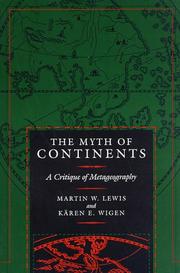
ISBN: 1280080256 9786613520241 0520918592 9780520918597 0520207424 9780520207424 0520207432 9780520207431 Year: 1997 Publisher: Berkeley, Calif. University of California Press
Abstract | Keywords | Export | Availability | Bookmark
 Loading...
Loading...Choose an application
- Reference Manager
- EndNote
- RefWorks (Direct export to RefWorks)
In this thoughtful and engaging critique, geographer Martin W. Lewis and historian Kären Wigen reexamine the basic geographical divisions we take for granted, and challenge the unconscious spatial frameworks that govern the way we perceive the world. Arguing that notions of East vs. West, First World vs. Third World, and even the sevenfold continental system are simplistic and misconceived, the authors trace the history of such misconceptions. Their up-to-the-minute study reflects both on the global scale and its relation to the specific continents of Europe, Asia, and Africa-actually part of one contiguous landmass.The Myth of Continents sheds new light on how our metageographical assumptions grew out of cultural concepts: how the first continental divisions developed from classical times; how the Urals became the division between the so-called continents of Europe and Asia; how countries like Pakistan and Afghanistan recently shifted macroregions in the general consciousness.This extremely readable and thought-provoking analysis also explores the ways that new economic regions, the end of the cold war, and the proliferation of communication technologies change our understanding of the world. It stimulates thinking about the role of large-scale spatial constructs as driving forces behind particular worldviews and encourages everyone to take a more thoughtful, geographically informed approach to the task of describing and interpreting the human diversity of the planet.
Geographical perception. --- Geopolitics. --- World politics --- Environmental perception --- Maps, Mental --- Mental maps --- Perceptual cartography --- Perceptual maps --- Perception --- Orientation (Psychology) --- Space perception --- Geography --- Perception géographique --- Géographie --- History --- Histoire --- Geodesy. Cartography --- History as a science --- Geografie --- Sociale en economische geografie --- Algemeen. --- Geographical perception --- academic. --- afghanistan. --- analysis. --- asia. --- cold war. --- continental divide. --- continents. --- criticism. --- critique. --- economic. --- economy. --- europe. --- first world. --- geographical. --- geography. --- global. --- government. --- historian. --- historical. --- international issues. --- international. --- law and order. --- macroregions. --- misconception. --- myth. --- pakistan. --- philosophy. --- regional. --- scholarly. --- third world. --- world issues.
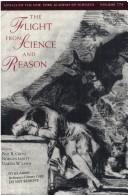
ISBN: 1573310034 1573310026 9781573310031 Year: 1996 Volume: 775 Publisher: New York New York academy of sciences
Abstract | Keywords | Export | Availability | Bookmark
 Loading...
Loading...Choose an application
- Reference Manager
- EndNote
- RefWorks (Direct export to RefWorks)
Christianisme et science --- Christianisme et sciences --- Christianity and science --- Femmes dans les sciences --- Geology -- Religious aspects --- Geology and religion --- Godsdienst en wetenschap --- Géologie et religion --- Religion and science --- Religion et science --- Religion et sciences --- Religion et sciences naturelles --- Religion et technologie --- Religions et sciences --- Science -- Religious aspects --- Science and religion --- Science et christianisme --- Science et religion --- Sciences et christianisme --- Sciences et religion --- Sciences et religions --- Sciences naturelles et religion --- Technologie et religion --- Vrouwen in de wetenschap --- Wetenschap en godsdienst --- Women in science --- Science --- Philosophy --- Social aspects --- Congresses. --- 001 --- 165 --- 501 --- Wetenschap en kennis--(algemeen) --- Kennisleer. Epistemologie --- Generalities about the exact sciences. Mathematical sciences in the broad sense, including astronomy, mechanics, mathematical physics --- Conferences - Meetings --- 001 Wetenschap en kennis--(algemeen) --- 501 Generalities about the exact sciences. Mathematical sciences in the broad sense, including astronomy, mechanics, mathematical physics --- 165 Kennisleer. Epistemologie --- Natural science --- Science of science --- Sciences --- Congresses --- Philosophy&delete& --- Social aspects&delete& --- Natural sciences --- Science - Philosophy - Congresses --- Science - Social aspects - Congresses. --- Women in science - Congresses. --- Religion and science - Congresses. --- Science-philosophy --- Science-social aspects
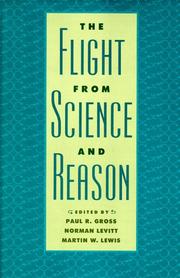
ISBN: 0801856760 Year: 1997 Publisher: New York (N.Y.) Academy of Sciences
Abstract | Keywords | Export | Availability | Bookmark
 Loading...
Loading...Choose an application
- Reference Manager
- EndNote
- RefWorks (Direct export to RefWorks)
Digital

ISBN: 9780824866129 9780824865917 Year: 2017 Publisher: Honolulu, Hawaii University of Hawaii Press
Abstract | Keywords | Export | Availability | Bookmark
 Loading...
Loading...Choose an application
- Reference Manager
- EndNote
- RefWorks (Direct export to RefWorks)
Book

ISBN: 082486591X 0824875621 0824866126 082486610X Year: 2017 Publisher: Honolulu : University of Hawaii Press,
Abstract | Keywords | Export | Availability | Bookmark
 Loading...
Loading...Choose an application
- Reference Manager
- EndNote
- RefWorks (Direct export to RefWorks)
This collection of essays asserts the specific value of world history research and teaching, showing how the field contributes to the larger historical profession and offering concrete suggestions to develop more interaction between the academy and the public. The twelve contributors, each with their own academic areas of interest, are experienced scholars and classroom teachers. Uniting them together in this volume is their professional relationship with Jerry H. Bentley (1949-2012). This shared connection served as a catalyst to showcase Bentley's enduring legacy: a commitment to investigating large-scale questions with detailed empirical evidence that explains the human condition-documenting both patterns of similarity and difference in ways that account for regional and temporal variations. The volume continues Bentley's meticulous attention to world historical methods: focus on scale, cross-cultural encounter, comparison, periodization, critical geography, and interdisciplinarity. Encounters Old and New in World History responds to provocations that Jerry Bentley tendered in his scholarship and through his professional activities. Contributors interrogate the institutional settings, disciplinary proclivities, methodological choices, and diverse source bases of world history research and teaching. Several essays address the ways in which present-day concerns influence research on local and global scales. Other essays pay particular attention to the production and circulation of knowledge across regional, temporal, and class boundaries, as well as between the academy and the wider public. Claiming the centrality of globally informed and focused approaches to historical inquiry, researchers continue the conversations that Bentley carried on through his own scholarship, teaching, editing of the Journal of World History, participating in public forums, and contributing to public discussions about the place of history in understanding today's global integration. The stakes involved in asking questions about the shared history of humankind continue to increase in the current era of intensified globalization. It is incumbent upon scholars with the skills to work across linguistic, geographic, temporal, and disciplinary boundaries to show the ways that cross-cultural encounters happened historically, and to point out how such interactions play out in the institutions, classrooms, and public debates where historical interpretations are created and shared.
World history. --- Universal history --- History
Book

ISBN: 9780824860530 Year: 2010 Publisher: Honolulu
Abstract | Keywords | Export | Availability | Bookmark
 Loading...
Loading...Choose an application
- Reference Manager
- EndNote
- RefWorks (Direct export to RefWorks)
Book

ISBN: 9780824866129 Year: 2017 Publisher: Honolulu
Abstract | Keywords | Export | Availability | Bookmark
 Loading...
Loading...Choose an application
- Reference Manager
- EndNote
- RefWorks (Direct export to RefWorks)
| Listing 1 - 10 of 11 | << page >> |
Sort by
|

 Search
Search Feedback
Feedback About UniCat
About UniCat  Help
Help News
News